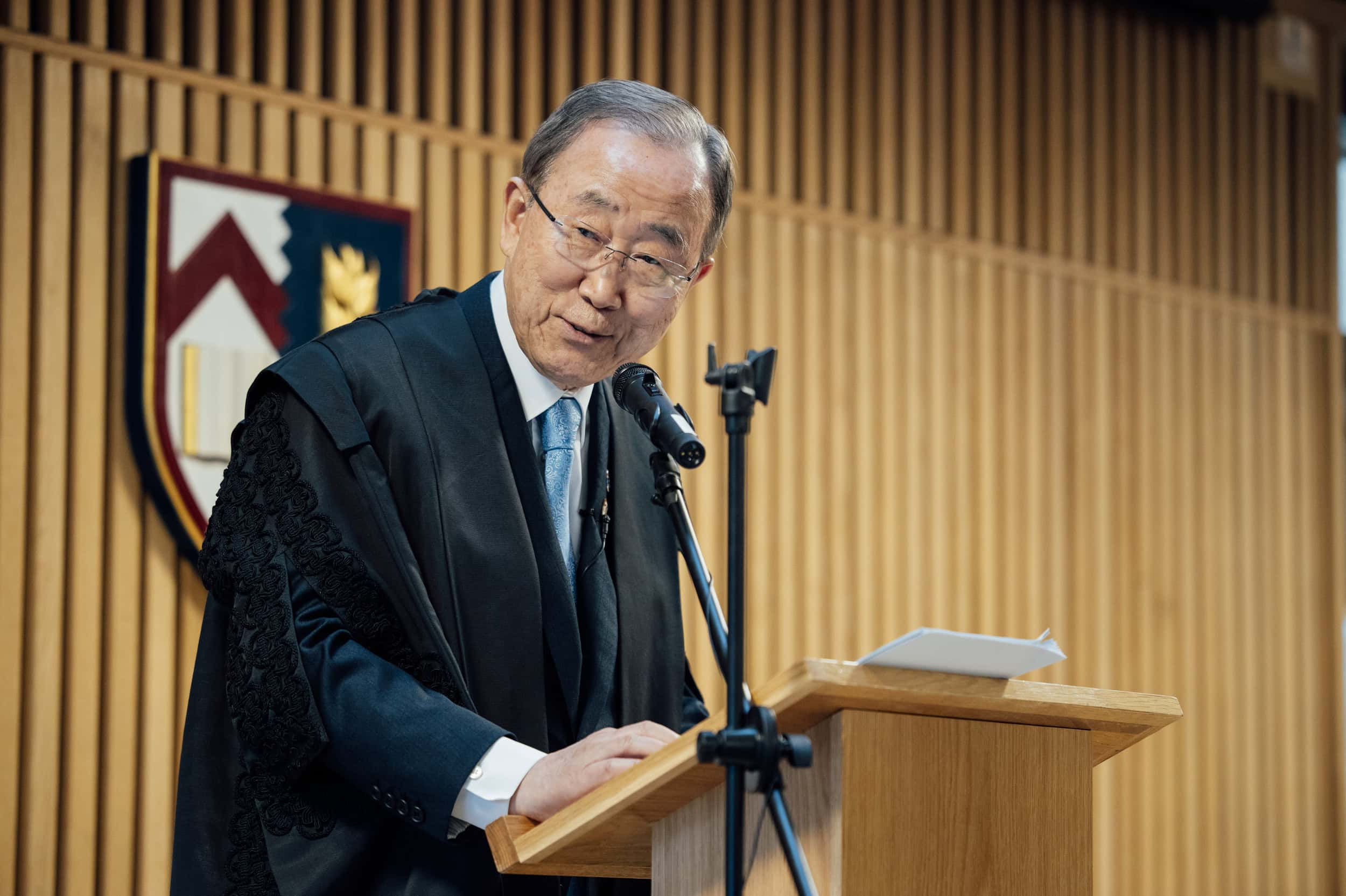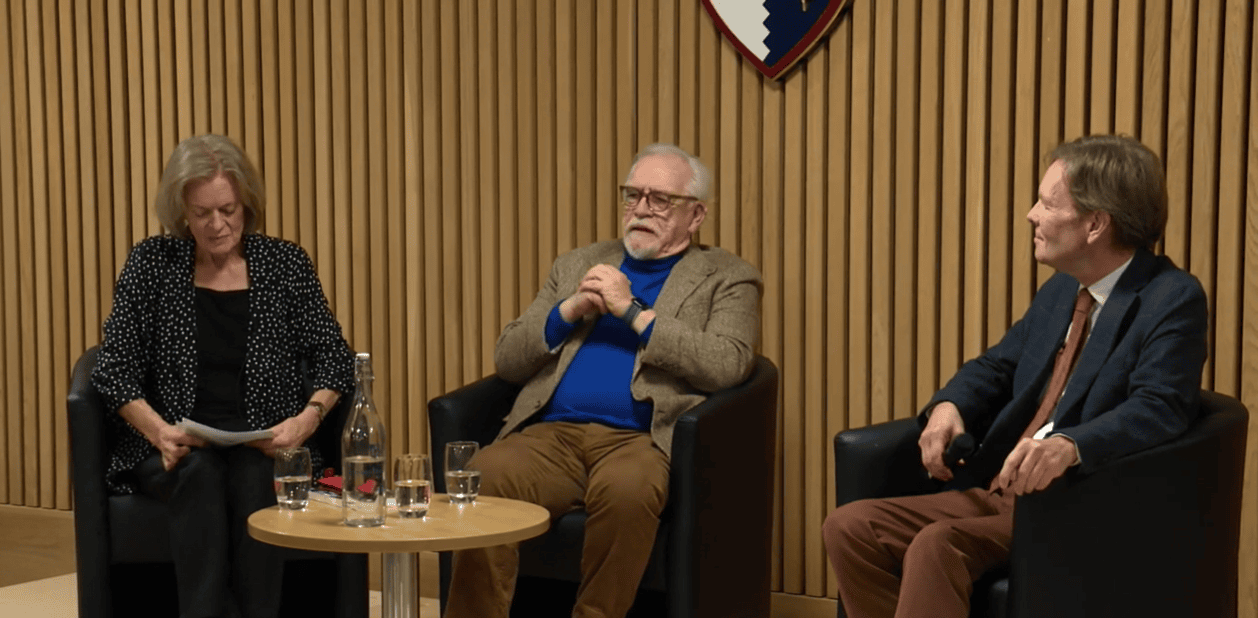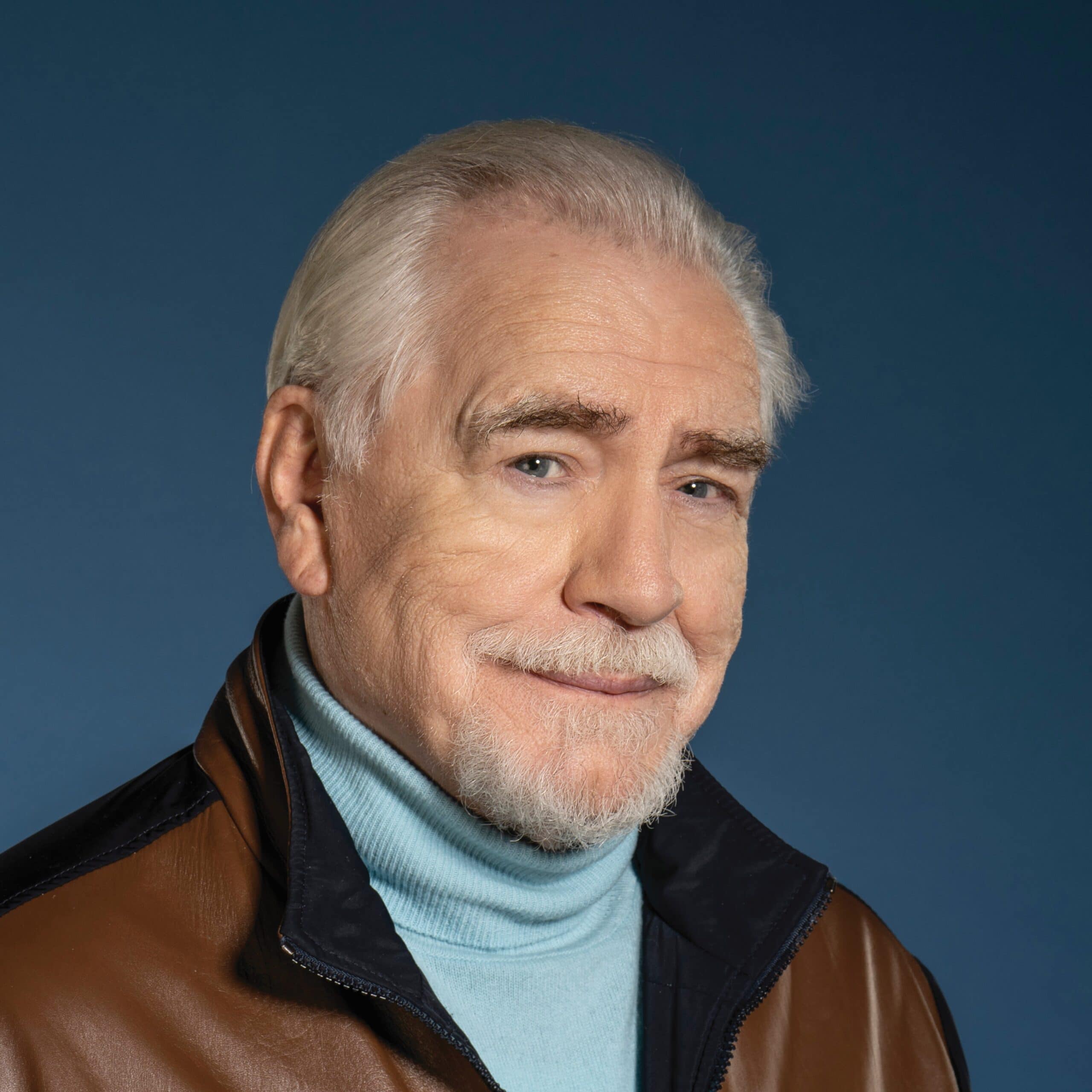Connect Magazine 2024
Featuring profiles of Ban Ki-moon and Brian Cox.
Highlighted features
Our 2024 edition of Connect Magazine brings you reflections from our College President, aspirations from our College Bursar, memories from alumni, insights from academics, and featured profiles of two very special people who recently joined our community: former UN Secretary General Ban Ki-Moon, as our newest Bynum Tudor Fellow, and renowned actor Brian Cox, as Artist in Residence.
Ban Ki-moon
In Spring 2024, the College bestowed its highest honour, a Bynum Tudor Fellowship, to former UN Secretary General Ban Ki-moon.
In the realm of global diplomacy, few figures have had such a positive impact on the world stage as Ban Ki-moon, the eighth Secretary-General of the United Nations. As a statesman, diplomat, and advocate for peace, Ban’s tenure from 2007 to 2016 was characterised by a steadfast commitment to universal values, tireless efforts to address pressing global challenges, and a dedication to fostering cooperation among nations.
Accepting the Fellowship, Ban Ki-moon remarked:
I’m delighted to have been honoured by an Oxford college that shares my passions for social and environmental sustainability, tackling climate change, and promoting international human rights.
Brian Cox
In 2024, award-winning actor Brian Cox CBE became a Visiting Fellow and Artist in Residence at Kellogg College.
Brian Cox, the venerable Scottish actor, is a force to be reckoned with in the world of entertainment. With a career spanning over six decades, Cox has made an indelible mark on both stage and screen, showcasing his exceptional talent, versatility, and commanding presence.
Brian joined Kellogg President, Professor Jonathan Michie, and Dr Clare Morgan, Director of Kellogg’s Centre for Creative Writing, for an ‘In conversation’ session to mark the beginning of his time as an Artist in Residence in the college.
He talked through some significant moments in his career, reflected upon how he came to be the lauded actor he is, and shared his opinions on – and anecdotes about – people he has worked with through the years. His focus on the written word was paramount as he explained in response to Dr Morgan who leads the College’s Centre for Creative Writing.
‘The writer-actor relationship is based on trust’, he said, distancing himself a little from those actors who would insist on having input. ‘If you have good writers, they know what they are doing. It’s not for the actor to fill in gaps they think are there. You don’t tell Anton Chekov how to write. The great writers do it for you.’
But that is not to say that actors are merely blank canvasses. ‘Imagination trumps emotional memory,’ he asserted, as the conversation turned to the ‘method’ school of acting. Exploring the text was part and parcel of exploring yourself. ‘You have to think with a text,’ he said, ‘Drama school taught me to think.’ Indeed, he agreed that being an actor, with little in the way of an age barrier, is almost the very definition of lifelong learning – so fundamental to the Kellogg ethos.
Acting is about holding the mirror up to nature. In the end, you fall back on yourself and your experience. It opens up your understanding of yourself and helps you learn to trust yourself.
Members of Kellogg are indeed fortunate to be able to count amongst their number someone who has over 50 years in the acting and writing business, and a vast catalogue of experience to draw upon from what he calls ‘The Human Journey’.


